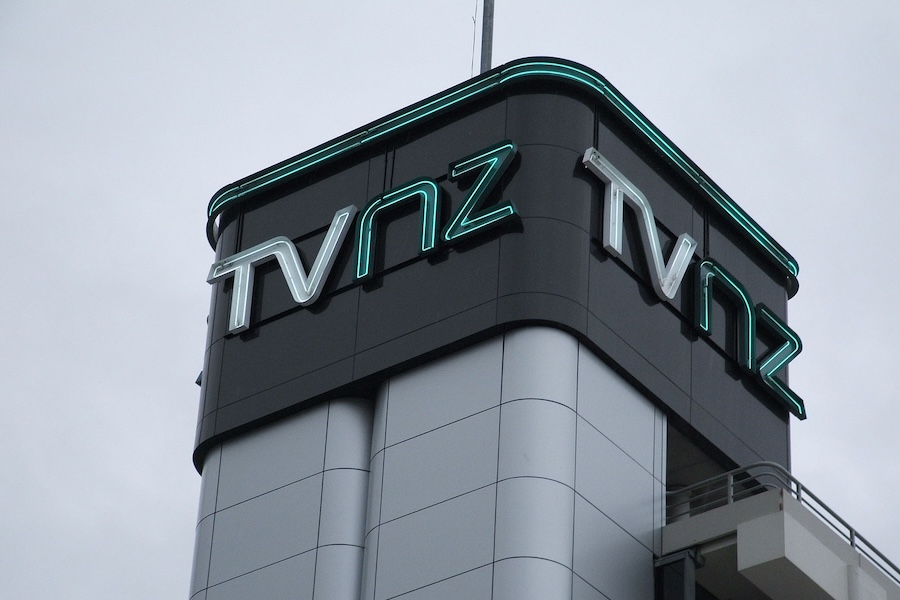In good faith? Job cuts at TVNZ and the consultation process
Rocky times for media puts spotlight on business rights versus rights of employees in redundancy situations, explains employment lawyer Barbara Buckett.
On the heels of the proposed Newshub closure, TVNZ has announced the start of a consultation process which could see some 68 news staff let go. It envisages a final decision to be made in April.
There is no doubt that media organisations globally are genuinely in difficulty, and both TVNZ and Newshub are in the eye of the storm. However, regardless of how dire the situation may be, such does not dispense with the rights of employees under the Employment Relations Act to fair process which includes meaningful consultation and the consideration of alternatives.
Under the law the courts will look beyond the mere genuineness of the situation. It will determine whether an employer’s decision is one that a fair and reasonable employer could make; there is no distinction made under the law between a dismissal for cause and a no fault dismissal.
So where is the balance between the rights of a business to make business decisions and the rights of employees to fair consideration of continued employment or compensation in a potential redundancy setting?
There is no doubt that in both the above-mentioned circumstances, there are genuine business reasons for the proposals.
But it doesn’t stop there. Having identified genuine business imperatives an employer must properly evaluate the situation including the prospect of options (such as redeployment or attrition) before any dismissal for redundancy is justified.
This raises in the case of TVNZ some interesting issues for debate. This as TVNZ is state funded with government interest, and in light of the fact that Newshub had suggested a rescue package in the form of an alternative collaborative, decentralised media service which TVNZ rejected.
In addition, underscoring the redundancy process, is the concept of good faith.
Under The Act an employer has a duty of good faith.
This duty includes the obligation to provide an employee with all information that will or is likely to have an adverse effect to the continuance employment of their employment at the time that information becomes available with an opportunity to comment. Sitting on relevant and vital information is arguably not good faith. A fair and reasonable employer could not breach its good faith obligations. The purpose of the good faith is to breathe meaning into the consultation process to ensure it is real and not just a perfunctory tick the box exercise.
The proposal must contain an adequate explanation for the rationale, and the evidence substantiating proposal. The Employment Court has said that “…it can never be an answer to say that it (consultation) would have made no difference”.
Consultation also requires an open mind, listening. It must “be a reality, not a charade” the Court has said, which involves a readiness to change and start afresh. It is in this context interesting to hear that the Callagan Institute recently announced its approach to a potential redundancy as not a proposal to “let go” but a strategic reset. Perhaps this approach may constitute what a fair and reasonable employer could do before it gets too far down the track, and options are more closed than open before it involves employees for the consultation.
The duty of good faith means employees are entitled to be involved well before the employer decides to involve them. That right of involvement coincides at the time adverse information crystallises, not well after. In the case of TVNZ, this may include board reports and deliberations concerning the structure model and direction of media services. Employees have a right to know, so they can make informed decisions about their futures and alternatives.
The purpose of the good faith requirements is to empower and treat with dignity and respect. Its purpose is to invoke at an early stage to ensure that options available at the time are not dissipated or unreasonably discarded. The good faith obligation is to avoid – as in the Newshub situation – surprise which may have an adverse health and safety impact that goes with sudden shock.
Furthermore, it is not justified to employ new employees in the knowledge of a precarious financial situation where that will or is likely to affect their ongoing employment. It is also an offence to mislead or decisive in relation to employment matters under the Fair Trade legislation.
Whilst Newshub rid itself of all local content and media services, TVNZ is to carve up across all business areas which raises more issues in respect of how those decisions – as to what goes and what stays – is made, and the justification for ongoing employment.
Before consultation, TVNZ has already earmarked Fair Go, Sunday, Re: and Tonight. There is speculation that Fair Go might be merged into Seven Sharp.
Not only is the rationale for these decisions by TVNZ interesting, but also of interest will be how the corporation determines employment consequences when programmes that stay are suitable redeployment opportunities for those occupying chopped programmes.
Employers must be active and constructive in maintaining productive employment relationships. The courts have been clear that a failure to consider redeployment may render the redundancy not genuine and therefore unjustified. Dismissal is not the default position.
Suitable redeployment means one an employee can perform. So in the case of TVNZ, it may find itself in an employment law quandary if persons involved in Fair Go or Sunday for example, are capable of working on Seven Sharp even though they might not be the best persons. Contestability for roles could become an issue.
Reinstatement is still the primary remedy under The Act. An employer such as TVNZ may plausibly be faced with a reinstatement claim from unjustifiably displaced employees where redeployment options are not offered.
The consultation process initiated by TVNZ is a critical step in determining the fate of its news staff and the future of its media service. While the challenges faced by TVNZ and other media organisations are undeniable, they do not justify a hasty or unfair dismissal of employees who have dedicated their skills and efforts to the company.
TVNZ must carefully weigh the pros and cons of its proposal, consider all alternative options before any final decision is made, and respect the dignity and interests of its news staff in this difficult time.







